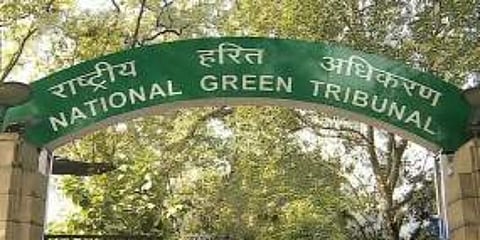

CUTTACK: The National Green Tribunal (NGT) has directed that no construction of permanent nature will be allowed until further orders on the 421-acre land reclaimed on the Mahanadi river bed upstream of Jobra barrage in Cuttack. The NGT’s six-member special bench headed by chairperson Justice Adarsh Kumar imposed the restriction while forming a new seven-member expert committee to assess the ecological and combined hazard vulnerability of the reclaimed river bed on Monday.
“We direct a joint committee of seven experts with five members in the earlier committee and two other experts - Prof. CR Babu, eminent ecologist and environmentalist, and Prof PC Mishra, former expert member of NGT - to undertake the study so as to include ecological and hydrological aspects and vulnerability, adding these components in the report,” the bench said.
The green body directed the new experts’ committee to make detailed recommendations identifying the steps required for protecting the floodplain zone and the environment within three months. The bench said the Central Pollution Control Board will be the nodal agency to carry out the entire exercise and posted the matter to April 24 for further consideration.
The NGT was hearing social activist Pradip Pattnaik’s application regarding dumping of sand on over 3 km stretch of the river bed and in the process raising its height by nearly six feet and pushing back the water stream to at least 500 metre from the banks.
Pattnaik alleged that the reclaiming of the river bed which was part of an attempt to monetise the vast stretch for a proposed riverfront improvement project had caused damage to the environment and the riverine ecosystem. The Tribunal had earlier constituted a five-member expert committee to assess the impact of the State government’s proposal for riverfront improvement so as to ensure that the development takes place in accordance with the law, without damage to the flood plains of the river.
The committee had submitted its report and recommended restrictions on the construction of permanent structures in the reclaimed stretch of the river bed. But advocate Prabhu Prasanna Behera who appeared on Pattnaik’s behalf submitted that the report had not considered ecological and hydrological aspects as directed by the tribunal in its order on December 15, 2020.
Such consideration is essential for the protection of flood plain zone and associated issues relating to ecology, environment and biodiversity, Behera contended.